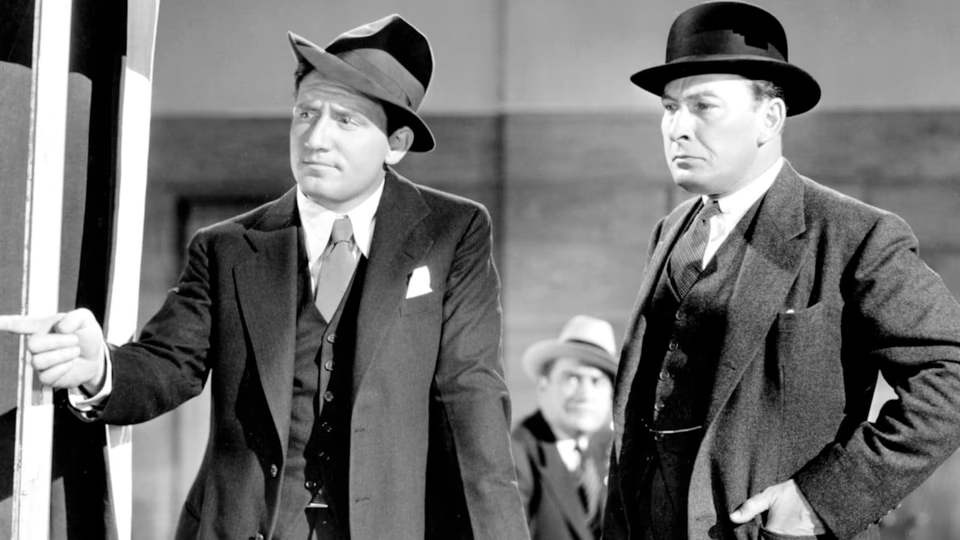The Murder Man

Five years into the talkie revolution, Hollywood was overcompensating. The Murder Man features enough dialogue for three movies, drowning a great performance from Spencer Tracy.
Tracy plays the titular “Murder Man,” a star reporter for a New York daily who earned his nickname by covering the city’s highest-profile homicide stories. His latest beat involves a crooked businessman shot on a crowded street in broad daylight. Tracy leads the police through the investigation while breaking stories with an eerie prescience. But when he finds himself on the stand giving testimony against the accused murderer, the stress threatens to break him.
The first-rate production features multiple sets and tons of extras. In his disheveled suit, with his hat cocked back atop bushy hair, Tracy shines, looking every bit the part of an alcoholic newsman. But these assets are wasted on a talky script.
It narrates everything. Even the transitions. An early sequence sees Tracy missing after going on a bender. His editor has the newsroom canvassing the streets for him, including “Shorty” a reporter played by Jimmy Stewart in his feature debut. Capping a montage sequence, Stewart asks a bartender if he’s seen Tracy. The bartender says no, and Stewart starts to leave, then turns back to the bartender and says, “The guy’s got me on a merry-go-round.” Cut to a merry-go-round where Tracy’s asleep.
It wouldn’t be such a problem if the dialog weren’t so bad. Consider this bit of exposition from Tracy’s editor: “You’re a crazy cynical drunken bum, but as a news-getter, you’re there.”
The ending proves the most egregious example. Tracy has dictated his final story and given it to co-star Virginia Bruce to transcribe. The film should have ended here, with a poignant shot of Bruce’s reaction listening to Tracy’s story, followed by a shot of Tracy resigning himself to his inevitable fate. But no, ever in love with its own dialog, the script tacks on a redundant scene where Tracy recaps the entire movie, followed by a coda that undermines what little emotional resonance the ending proffered.
As an entertaining piece of filmmaking, The Murder Man underwhelms, but as a curiosity, it may hold value. For Spencer Tracy fans, it began his twenty-year association with studio MGM. For Jimmy Stewart fans, it marked an adequate, if inauspicious debut.
Perhaps 1935 audiences were so enamoured with the novelty of talkie-sound they thrilled to the endless reams present here. I suspect not. Hollywood would endure such excesses for another five years before Howard Hawks ushered in the next sound revolution with His Girl Friday, where he’d solve the endless dialog problem by having his characters talk over each other.